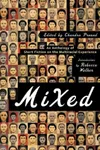Picture a storyteller who weaves tales of race, identity, and the messy beauty of human connection—meet Danzy Senna! This American novelist and essayist burst onto the literary scene with her debut novel Caucasia, a poignant coming-of-age story that captured hearts and sparked conversations about multiracial identity in America. With a sharp wit and unflinching honesty, Senna’s work challenges us to rethink how we define ourselves in a world obsessed with labels.
Born in 1970 in Boston, Senna grew up in a family that embodied the complexities she’d later explore in her writing. Her parents’ interracial marriage, just a few years after the landmark Loving v. Virginia decision, was a radical act in itself. Today, as a professor and celebrated author, Senna continues to push boundaries, blending humor, satire, and heart in stories that resonate across generations.
The Making of Danzy Senna
Danzy Senna was raised in Boston, the middle child of three, with a poet mother, Fanny Howe, who hailed from a prominent white New England family, and a father, Carl Senna, an Afro-Mexican scholar and civil rights activist. This rich, sometimes turbulent mix of cultures shaped her worldview. Senna earned a BA in American Studies from Stanford, where she studied writers like Nella Larsen, and later an MFA from UC Irvine, where she penned Caucasia. Her parents’ divorce and the racial tensions of 1970s Boston fueled her fascination with identity, setting the stage for a career that would redefine how we talk about race.
Danzy Senna’s Unforgettable Stories
Senna’s debut, Caucasia (1998), follows Birdie Lee, a biracial girl navigating a fractured family and a society that demands she choose a side. A national bestseller translated into ten languages, it won the Stephen Crane Award and became a staple in college courses. Her second novel, Symptomatic (2004), is a psychological thriller about a young mixed-race woman grappling with displacement in New York City. In New People (2017), Senna turns to sharp satire, poking fun at the absurdities of race and class in 1990s Brooklyn. Her latest, Colored Television (2024), is a hilarious takedown of Hollywood’s obsession with identity, earning praise as a New York Times Notable Book. Senna’s memoir, Where Did You Sleep Last Night? (2009), digs into her family’s history, blending personal and political with raw honesty.
Senna’s style is a masterclass in balance: her prose is lyrical yet accessible, her humor biting yet warm. She tackles heavy themes—racial passing, belonging, and the myths of post-racial America—with a light touch that invites readers in rather than preaching. Her characters, often biracial and caught between worlds, reflect the “canary in the coal mine” role she describes for mixed-race people, revealing society’s deepest anxieties.
Why Danzy Senna Matters
Danzy Senna’s work is a mirror and a megaphone, reflecting the complexities of multiracial identity while amplifying voices often ignored in mainstream literature. Her novels and essays, published in outlets like The New Yorker and The Atlantic, have reshaped how we understand race in America, challenging the binary of Black and white. By blending satire, thriller, and memoir, she’s carved out a unique space in contemporary fiction, inspiring a new generation of writers to explore identity with courage and nuance. As a professor at USC, she mentors aspiring storytellers, ensuring her impact extends beyond the page.
- Born: September 13, 1970, Boston, Massachusetts
- Key Works: Caucasia, Symptomatic, New People, Colored Television, Where Did You Sleep Last Night?
- Awards: Stephen Crane Award, Alex Award, Whiting Writers Award
- Fun Fact: She’s married to novelist Percival Everett, and they live near Los Angeles with their two sons.
Ready to dive into a world where identity is both a puzzle and a punchline? Grab Caucasia or Colored Television and let Danzy Senna’s brilliant storytelling sweep you away!






